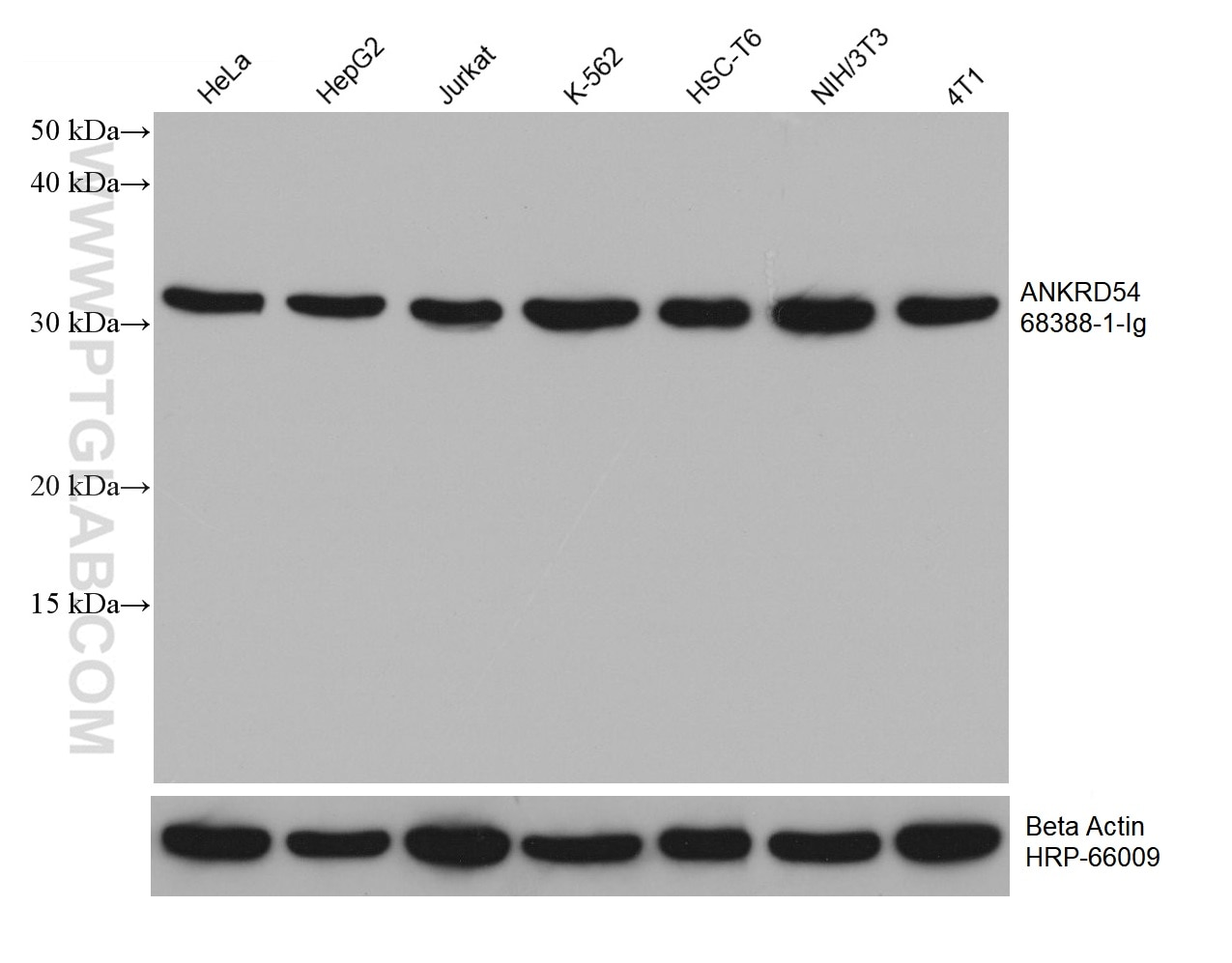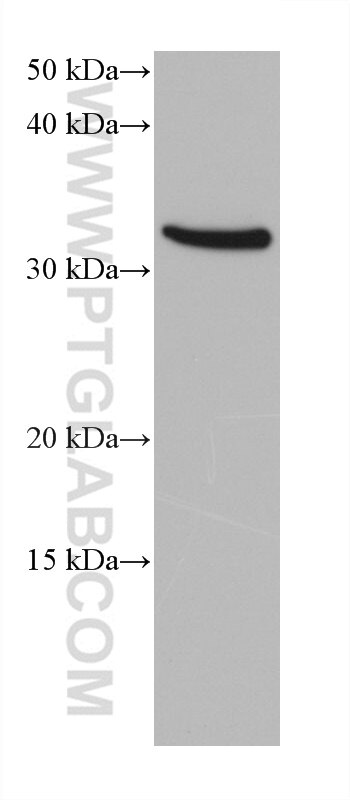Tested Applications
| Positive WB detected in | HeLa cells, U2OS cells, HepG2 cells, Jurkat cells, K-562 cells, HSC-T6 cells, NIH/3T3 cells, 4T1 cells |
Recommended dilution
| Application | Dilution |
|---|---|
| Western Blot (WB) | WB : 1:2000-1:10000 |
| It is recommended that this reagent should be titrated in each testing system to obtain optimal results. | |
| Sample-dependent, Check data in validation data gallery. | |
Product Information
68388-1-Ig targets ANKRD54 in WB, ELISA applications and shows reactivity with Human, Mouse, Rat samples.
| Tested Reactivity | Human, Mouse, Rat |
| Host / Isotype | Mouse / IgG1 |
| Class | Monoclonal |
| Type | Antibody |
| Immunogen |
CatNo: Ag22772 Product name: Recombinant human ANKRD54 protein Source: e coli.-derived, PET28a Tag: 6*His Domain: 201-300 aa of BC066909 Sequence: RVDALDRAGRTPLHLAKSKLNILQEGHAQCLEAVRLEVKQIIHMLREYLERLGQHEQRERLDDLCTRLQMTSTKEQVDEVTDLLASFTSLSLQMQSMEKR Predict reactive species |
| Full Name | ankyrin repeat domain 54 |
| Calculated Molecular Weight | 300 aa, 33 kDa |
| Observed Molecular Weight | 33-35 kDa |
| GenBank Accession Number | BC066909 |
| Gene Symbol | ANKRD54 |
| Gene ID (NCBI) | 129138 |
| RRID | AB_3085106 |
| Conjugate | Unconjugated |
| Form | Liquid |
| Purification Method | Protein G purification |
| UNIPROT ID | Q6NXT1 |
| Storage Buffer | PBS with 0.02% sodium azide and 50% glycerol, pH 7.3. |
| Storage Conditions | Store at -20°C. Stable for one year after shipment. Aliquoting is unnecessary for -20oC storage. 20ul sizes contain 0.1% BSA. |
Background Information
Ankyrin repeat domain 54 (ANKRD54)/Liar is a nuclear-cytoplasmic shuttling adaptor that interacts with Lyn, Btk, Txk, and HCLS1. Activation of PKC kinases promoted nuclear export and phosphorylation of Ankrd54, and increased interaction and cytoplasmic co-localization with Lyn.
Protocols
| Product Specific Protocols | |
|---|---|
| WB protocol for ANKRD54 antibody 68388-1-Ig | Download protocol |
| Standard Protocols | |
|---|---|
| Click here to view our Standard Protocols |






